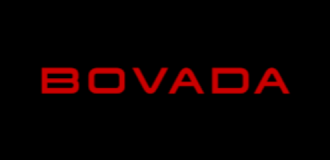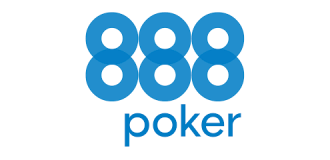The different types and variations of poker games
What do you know about poker variants? Omaha, NLHE, Shortdeck - is that all? If so, we might have a few other options worth discovering.
A quick history of poker and the most basic division into groupsThe closest European predecessor of the game we know as poker was a french Poque, first seen in France in the 17th century. It was brought to french colonies in North America and modified by English-speaking settlers. They added features we know today, including a 52-card deck, and anglicized ‘poque’ to ‘poker’. At the beginning of the 21st century, the popularity of poker had increased massively, mostly because of the introduction of online poker, and it's still going on. The most popular types of poker can be divided into three groupsCommunity card poker: in these games, each player's incomplete hidden hand is combined with shared face-up cards. The most common are Texas Hold’em and Omaha.Draw poker: in these games players are dealt a complete hand, hidden, and then improve it by replacing cards. The most common of these is a five-card draw.Stud poker: in these games each player receives a combination of face-up cards and face-down cards in multiple betting rounds. The most common of these are the five-card stud and seven-card stud.Now when you know the most basic divisions of poker games I can show you the differences in various formats of poker and introduce you to some rare, extraordinary, and specific types. As you know (or not) poker can be played in a mixed game format. Some of them don't fit into the above categories, and some have features of more than one of these categories. Texas Hold'emThis one is definitely the most popular variant of poker at the moment. No matter which online poker room you’d choose, you’ll find Hold’em tables for sure. If you never played poker, this is one of the best ways to start your poker adventure. This is a community card game, which means that some of the cards are shared by all the players, who use them to make the best possible five-card hand. At the start of the game each player receives two cards face down, then after the pre-flop bets dealer reveals the first three face-up cards known as ‘flop’ and the second round of betting starts here. After the flop, there are two more community cards to be dealt, the fourth one called ‘turn’ and finally the fifth one - ‘river’.OmahaOmaha Poker, also known as Omaha Hi, has many similarities to Texas Hold’em, which makes it probably the easiest game to switch to. To play Omaha you need at least two players. The main difference is that each player is dealt four face-down cards and the pre-flop bid starts with the player to the left of the big blind but every next round starts with the player who posted small-blind. To win an Omaha game you need to build a five-card hand consisting of exactly two of your hole cards and three of the shared cards. We can distinguish between Limit Omaha and Pot-Limit Omaha, better known as PLO. You will rarely see no-limit Omaha games anywhere. Let me show you how the Limit Omaha works. Imagine you are sitting at a $5/$10 Omaha table, the small blind is $2.5 and the big blind is $5. After the blinds are posted the next player decides to ‘call’ and posts his $5 bet. Another player decides to raise but because of the limits, he can only raise $5, so he calls $5 and raises $5. In total this player bids $10. If the third player wants to raise he can only raise by $5 as well, taking the total bet to $15. In any round, there can only be three total raises. After the flop, the limits are the same, but after the turn, the bet limit increases to $10 and remains there for the river as well. PLO follows the same structure as standard limit Omaha but limits depend on the size of the pot. In other words, your raise cannot be bigger than the pot. A good place to play Omaha is Bet Online.Omaha Hi-LoOmaha Hi-Lo, also known as Omaha 8-or-better, is very similar to Omaha Hi. The major difference is that the pot is divided equally between two hands - the highest and the lowest. The “8-or-better’’ part of the name means that to gain “the low half” of the pot all five cards used to make the lowest hand must be ranked 8 or lower. Straights and flushes don’t count against a hand in this variant. The lowest hand you could make would be any A-2-3-4-5 combo whilst the highest “low” hand qualifying to get the pot would be 8-7-6-5-4.6+ Short DeckSix Plus Short Deck, also known as Six Plus Hold’em or Short Deck Hold’em, is a very fun variant of Hold’em with a few important differences - there are no cards from deuces to fives in the deck, a flush beats a full house and three of a kind beats a straight. Short Deck is played typically as an ante game. To start, each player has to place forward an ante, which helps to build the main pot, and the player on the button places an additional ante which will be used in the pre-flop betting. After the pre-flop round of betting the game continues like a regular Hold’em. One of the best choices to try 6+ Short Deck is definitely Snail Poker.Five-card drawFive-card draw is one of the easiest poker variants. This classic poker game is perfect for beginners as it’s very easy to learn and it’s based more on fun than devastating your enemies’ bankroll. The way of betting and structure of the game looks very similar to Hold’em and Omaha. The game starts when every player receives five faced-down cards. After the first betting round, the draw phase of the hand starts. Each player can choose which cards he wants to discard, and these are replaced by the dealer. When all cards are dealt, the second round of betting starts. This time the player on the dealer’s left side starts the action instead of the player to the left of the big blind.2-7 Triple draw2-7 Triple draw, also known as Kansas City Lowball, is a really exciting form of poker. It’s perfect for every experienced poker player who wants to test his skills. Your aim is to complete the lowest five-card hand possible, similarly to Razz. In the first round, you get five cards and you can ‘stand pat’ (keep these cards) or draw (replace any of your cards). As the name implies, you have three draw attempts to make the best ‘low’ hand. The lowest hand can be ranked in a few different ways - 2-to-7 Low (the best hand is 2-3-4-5-7), 2-to-6 Low (the best hand is 2-3-4-5-6), Ace-to-6 Low (the best hand is A-2-3-4-6, Ace-to-5 Low (the best hand is A-2-3-4-5)Seven-Card stud
Seven-Card stud used to hold the status of the most popular poker game before Texas Hold’em came to the fore. The goal is to make the best five-card hand possible using seven cards. The hands are ranked according to standard poker hand rankings. Each player is dealt with two face-down cards and one face-up card and the player with the lowest face-up card starts the action. When the first betting round comes to the end, everyone gets another face-up card called Fourth Street. Now the first player to bet is the one with the highest value of exposed cards. Now we are moving to the next round, every remaining player is dealt with another face-up card, called Fifth Street. Then we have Sixth Street which is played the same way as Fifth Street and the last face-up card is dealt. The Seventh Street is the final card and it’s dealt face-down. After betting comes time for the Showdown. The first one to reveal his pocket cards is the one who started the betting round. You can play 7-card Stud on Bovada.Open Face ChineseOpen Face Chinese is something very different from other poker games. If you are bored with classic Hold’em and you want to escape from the monotony of playing the same games all the time, then OFC is definitely a good choice for you. In this variant, your goal is to complete not one, but three best possible hands. Each player is dealt with 13 cards, so only up to 4 players can play at one table. There is a strict rule that the top three-card hand can’t be better than the middle five-card hand which in turn can’t be better than the bottom five-card hand. Hands ranking is the same as Texas Hold’em or Omaha, and instead of a winner-takes-all format, you can still win something even if you are not a big winner (e.g if you win 1 of 3 hands). One of the biggest poker rooms that have OFC in the offer is PPPoker.GUTSGuts poker is probably the easiest card game existing. Each player receives two cards and the player at the dealer’s left starts the game. Betting looks quite different from betting in the most popular poker variations. You’re only allowed to bet a predetermined amount, so if you play guts at $5 stakes, then you need to pay $5 into the pot. If you think that you have no chances to win with your hand you can obviously fold. Since every player has folded or stayed in the hand, it’s time for the showdown. The player with the strongest two-card hand wins the entire pot. In the next round each player who stayed in the hand and lost needs to bet the equivalent of the previous round’s pot.BadugiBadugi is quite unique because of the hand ranking system used to determine the best hand. Hands are ranked from the highest card downward, which means the value of the hand is based on how low is the highest card in the hand. Another feature that makes Badugi special is the fact that 4 cards are used for the hand ranking, unlike the traditional 5. Additionally, more suits in your hand = better for you. It’s also worthwhile to note that straights don’t affect the value of the hand, and Aces are always a low card. The best possible hand in this game is Ace of Hearts - Deuce of Clubs - Three of Diamonds - Four of Spades. HORSEHORSE is an extremely exciting formula for poker. It’s a combination of five different variants of this beautiful game. HORSE stands for: Hold’em; Omaha; Razz; Seven Card Stud; Eight or better (Stud Hi-Lo). Playing mixed formats relies on playing different variants in proper order. Each variation is played once per round. Mixed games such as HORSE are usually played as a fixed limit. Visit KingsClubPkr to enjoy a session of HORSE Poker. ZoomZoom poker is similar to Texas Hold’em, but once you start the session of Zoom, you will notice the difference. When the hands are dealt already, you have the option to stay and play the hand as normal or fast-fold your hand and get immediately transferred to the next table. You'll find Zoom tables on Winamax, BetKings, and BetFair.RazzRazz poker is nothing more than a Seven-Card stud but your aim is to make the lowest possible hand. Rules are basically the same for both Razz and 7-card stud. Each player is dealt with three face-down and four face-up cards. Aces are always low, and straights and flushes don’t count to the hand’s value. You can try your skills in Razz on SwC Poker.Now that you know some uncommon and interesting variants to play, it’s important to make sure that you understand the differences between the two basic formats of poker games.Cash GamesCash game is the format that most players were first introduced to. This type of game is played regularly everywhere. They are played at one table where you exchange real money for chips, which you can rebuy any time you want. There is a minimum amount of buy-in in every cash game depending upon the stakes. You can find cash games for literally every budget through plenty of online poker rooms. Blinds in cash games depend on the stakes and they stay the same for each hand. Tournament PokerIn a standard tournament, each player enters for the same amount of money, which includes the fee for keeping the tournament running and getting a predetermined amount of chips. Unlike regular cash games, tournaments can be played not only at one table, but at several tables simultaneously. If you lose all your chips, then you’re done and out of the tournament - you can’t rebuy chips. Another important fact is that the blinds escalate over the duration of the tournament to avoid players from waiting for better cards and force them to play conservatively. As opposed to cash games, chips cannot be exchanged for real money - they are only to establish your position in a tournament.Now it’s time to describe different formats and classification of tournaments in a few wordsKnock Out TournamentsKnock out tournaments are very common in online poker. Each player gets a proper amount of chips and all players are assigned at random tables, as many as it takes to seat everyone (10 players per table maximum). Now the game starts and as players are knocked out, remaining players are shuffled around to balance the remaining tables. Along with the duration of the tournament, blinds escalate and devour your stack. Of course as the event progresses you will need to loosen your starting hand requirements - you don't have time to sit and wait for monster hands. Players are getting knocked out until ten players are left and the play moves to one table - the final table. This is where the real money starts. From there poker is played until one player has all the chips, a winner.Progressive Knock-Out TournamentsProgressive Knock-Out Tournaments are also known as the Bounty tournaments. The concept of this exciting format is simple. Half of the buy-in goes to the prize pool and the second half makes a player's‘ bounty’. For example, if the buy-in is $1000 then $500 goes to the prize pool and $500 is a bounty. If player A busted player B on thfirst hand, he would get $250 and his bounty would be increased by $250. The biggest PKO Tournament currently running is MoMoMo on Americas Cardroom.Satellite TournamentsSatellite Tournaments are just feeders for the major tournaments. If you want to play in a big tournament like WSOP or WPT but you don’t want to spend too much for buy-in or you just can’t afford it, then satellites are a great opportunity for you to qualify for the top event. The only condition is to win the satellite.Shootout TournamentsShootout tournaments are multi-table tournaments quite different from other formats. Tables are not shuffled to balance as the players are knocked out. Each table plays until there is one winner per table, then all the winners play against each other until one ‘winner of the winners’ can be revealed.Sit and Go TournamentsSit and Go Tournaments were firstly played in online poker rooms but now are played in brick-and-mortar poker rooms as well. As the name implies, all you have to do is sit down. There is no fixed start time, action starts when there are enough players sitting at the table. SnGs are mostly played at a single table, but MTTs are fairly common too. If this format is convincing for you, you should try SnGs at PartyPoker.Scheduled TournamentsA scheduled Tournament is the opposite of a Sit & Go Tournament. These tournaments have a predetermined time of kick-off and the action starts regardless of the number of players but of course, there are some tournaments with an established number of players required to start, and even some have a fixed limit of players allowed to join. Unlike SnG’s, there is a settled registration period.Rebuy TournamentsThe main difference between cash games and tournaments is the fact that if you lose your chips in the tournament you’re out of the game. Well, not in this case. Rebuy tournament is a special format that allows you to buy in again if you lose all chips. Rebuying is possible only for a predetermined period of time, but the number of allowed rebuys is usually unlimited. All the additional money from rebuys goes to the prize pool.Freezeout TournamentsFreezeout Tournament is a term you can use to define barely every type of tournament. In a freezeout tournament, you can’t rebuy chips if you lose them. In other words, freezeout is the opposite of a rebuy tournament.Single Table Tournaments (STT) and Multi-Table Tournaments (MTT)The Single Table Tournament is much simpler as each player is seated at one table and the action goes on until the winner is revealed. Multi-Table Tournament could be kinda complicated as it runs across more than just one table. The total number of tables reduces along with the tournaments’ duration and elimination of players until there’s only one final table left.Regular Tournaments and Turbo TournamentsRegular Tournament and Turbo Tournament are terms we use to classify tournaments based on the speed of the blinds increase. On Regular Tournaments, the blind will increase at a standard pace, while in Turbo Tournaments they’ll increase more quickly. Guarantee Tournaments (GTD)A guarantee Tournament is any tournament that offers a guaranteed prize pool. That means the prize is paid regardless of the number of players, so if buy-ins won’t cover the guarantee then tournament organizers have to pay the missing amount from their own pocket. A missing amount in the guaranteed prize pool is called an ‘overlay’.A game of poker, besides cash game or tournament, can be classified based on the number of players at the tableFull ringFull ring table is also known as 10-max. This term refers to tables with a minimum of 7 and a maximum of 10 players. If the number of players drops below 7, we can still call the table full-ring but the action is short-handed then. Full ring tables are the most common format offered in both live poker tournaments and online poker tournaments. Stud poker games usually offer 8-max tables. You can find Full Ring Tables on 888poker and TigerGaming.Short-handedA short-handed game applies to tables with three to six players, that’s why it’s known also as a 6-max. 6-handed are constantly experiencing a rise in popularity. Short-handed online cash games currently outperform traffic in full-ring online cash games. You can also describe a 2-players table as short-handed but it’s not as common as ‘heads up’.Heads upHeads up is a duel of two players. We can use this term to define a 2-handed match on the table with only two seats as well as there are two players on the ring game whether other players have left or haven’t joined yet. The same for the tournaments, if there are only two players left on the final table it’s a heads-up match too. The last thing you should know is that we can sort poker games also by their limitsPot LimitIn Pot-limit games players can bet or raise any amount that fits between a predetermined minimum, which is usually equal to the big blind, and the current size of the pot. No LimitIn No-Limit games, bets and raises are unlimited. The only rule is that you can’t bet less than the minimum bet at the table.Fixed LimitIn Fixed Limit games bets are fixed for each round separately. The most popular are fixed games with two bet sizes called the small bet and the big bet.
Bovada
- Rakeback VIP System
- Deposit bonus 500$
the biggest poker network for USA players
soft field on heads-up games
big tourneys
anonymous tables, no hands tracking allowed
no more than NL400 when it comes to heads-up



